Vaadhu seidhidu maayai thannai
VaLaithu nindru midhithavan;
Soodhu sei pulanodu vanjaga
Choozh vinai thogai atravan.
Word meaning
vaadhu = argument; maayai = illusion, illusory; vaLaithu = bend, twist; midhi = to step on; soodhu = cunning, deceptive; pulan = sensory organs; vanjaga = cunning; soozh (becomes choozh if the previous word ends in ‘ch’ sound) = surround, envelope; vinai = karma, result of past action; atravan = one without (something).
Meaning
Our Ramana surrounded the illusory world of useless arguments and stepped on it (destroying it). He is free from the karmas resulting from the cunning (five) sensory organs.
It is only when we are in a state of duality all the differences are apparent and provide a cause for differences in views, opinions, perspectives and arguments. Once in the state of advaita, there is no other, a state explained by Bhagavan succinctly in this dialogue:
Q: How do we treat others?
Bhagavan: “There are no others.”
Also from Bhagavan’s ‘Who am I’:
“When the mind, which is the cause of all cognition’s and of all actions, becomes quiescent, the world will disappear,” and "When the mind that is subtle goes out through the brain and the sense- organs, the gross names and forms appear; when it stays in the heart, the names and forms disappear.”
Thayumanavar says:
Yaedhuku summa iru manamae endru unakku
Bodhitha uNmai engae poga vittai - vaddhukju
Vandhu edhirtha mallarai pol vaadhaadiyae un
Pundhi enna bodham enna po
Oh mind, why did you not heed the truth “be still” that was taught to you? You kept arguing with everyone just like a wrestler ready to fight anyone who gets into the ring – the ignorant fool that you are. What use is your intellect and the teaching (taught to you)?
‘Vaadhu seidhidu maayai thannai VaLaithu nindru midhithavan’ is reminiscent of a story from Lord Krishna and how he vanquished the venomous snake Kaliya who was poisoning the Yamuna river. Krishna defeated him and danced on his head (vaLaithu nindru mindithavan means he who bent (maya) and stepped on it).
The senses are likened to thieves in Aksharamana malai (aimbula kaLvar agathinil pugum podh agathil nee ilayo arunachala) and fierce, venomous animals by other sages. SV declares that Ramana is free from the grip of these deceiving, cunning monsters that are our senses.
‘vinai thogai’ could mean remainder of vinai (karma) and thogai is that which hangs on or remains (thokki nirthal). In Tamil grammar, it means a noun that plays across the three tenses as in ‘kudi neer’ which means drink water, drinking water and water that will be drunk in future. We can also take it to mean Bhagavan has transcended the three divisions of Time into past, present and the future as he is beyond Time and Space.
VaLaithu nindru midhithavan;
Soodhu sei pulanodu vanjaga
Choozh vinai thogai atravan.
Word meaning
vaadhu = argument; maayai = illusion, illusory; vaLaithu = bend, twist; midhi = to step on; soodhu = cunning, deceptive; pulan = sensory organs; vanjaga = cunning; soozh (becomes choozh if the previous word ends in ‘ch’ sound) = surround, envelope; vinai = karma, result of past action; atravan = one without (something).
Meaning
Our Ramana surrounded the illusory world of useless arguments and stepped on it (destroying it). He is free from the karmas resulting from the cunning (five) sensory organs.
It is only when we are in a state of duality all the differences are apparent and provide a cause for differences in views, opinions, perspectives and arguments. Once in the state of advaita, there is no other, a state explained by Bhagavan succinctly in this dialogue:
Q: How do we treat others?
Bhagavan: “There are no others.”
Also from Bhagavan’s ‘Who am I’:
“When the mind, which is the cause of all cognition’s and of all actions, becomes quiescent, the world will disappear,” and "When the mind that is subtle goes out through the brain and the sense- organs, the gross names and forms appear; when it stays in the heart, the names and forms disappear.”
Thayumanavar says:
Yaedhuku summa iru manamae endru unakku
Bodhitha uNmai engae poga vittai - vaddhukju
Vandhu edhirtha mallarai pol vaadhaadiyae un
Pundhi enna bodham enna po
Oh mind, why did you not heed the truth “be still” that was taught to you? You kept arguing with everyone just like a wrestler ready to fight anyone who gets into the ring – the ignorant fool that you are. What use is your intellect and the teaching (taught to you)?
‘Vaadhu seidhidu maayai thannai VaLaithu nindru midhithavan’ is reminiscent of a story from Lord Krishna and how he vanquished the venomous snake Kaliya who was poisoning the Yamuna river. Krishna defeated him and danced on his head (vaLaithu nindru mindithavan means he who bent (maya) and stepped on it).
The senses are likened to thieves in Aksharamana malai (aimbula kaLvar agathinil pugum podh agathil nee ilayo arunachala) and fierce, venomous animals by other sages. SV declares that Ramana is free from the grip of these deceiving, cunning monsters that are our senses.
‘vinai thogai’ could mean remainder of vinai (karma) and thogai is that which hangs on or remains (thokki nirthal). In Tamil grammar, it means a noun that plays across the three tenses as in ‘kudi neer’ which means drink water, drinking water and water that will be drunk in future. We can also take it to mean Bhagavan has transcended the three divisions of Time into past, present and the future as he is beyond Time and Space.

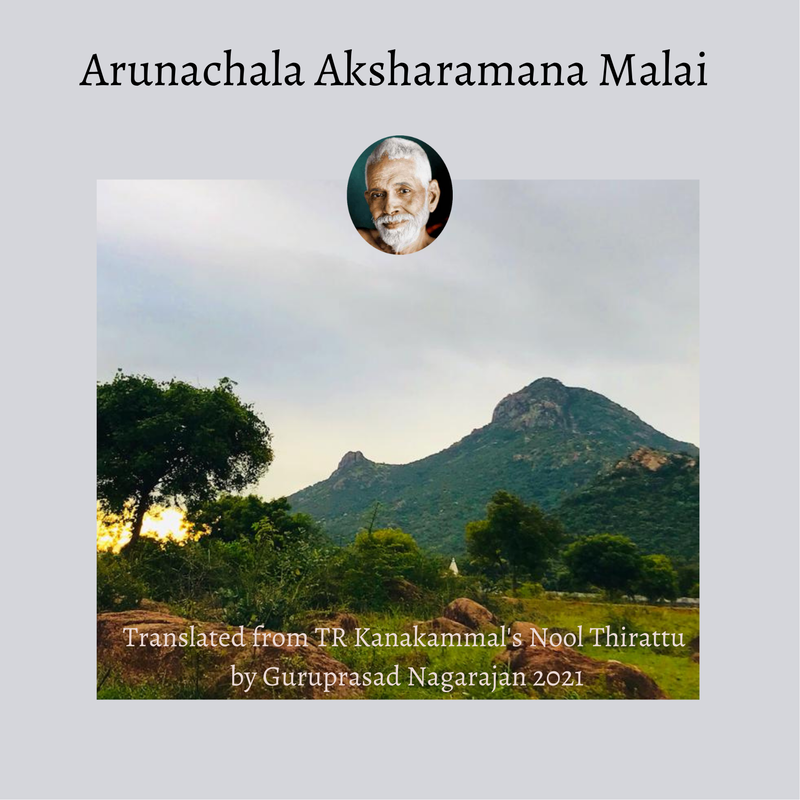
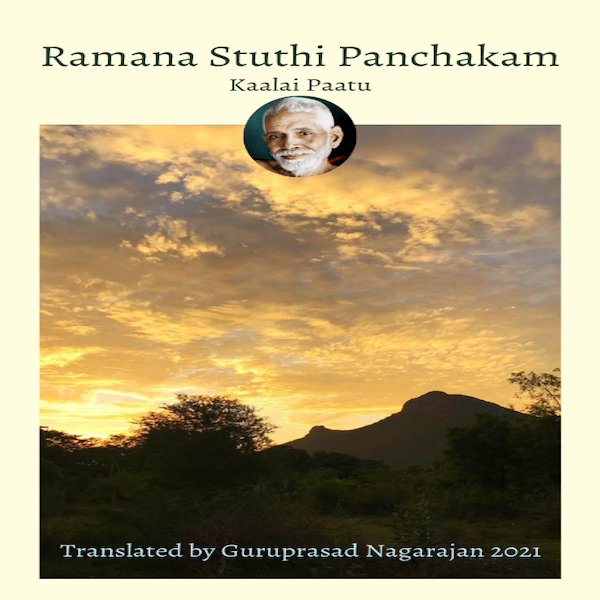
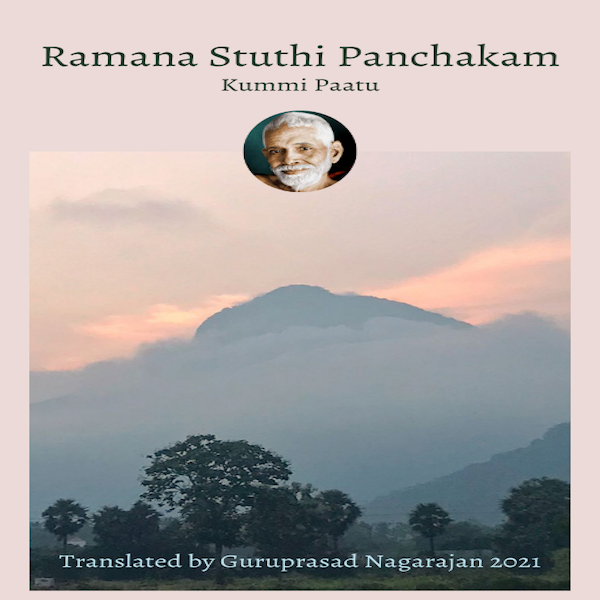
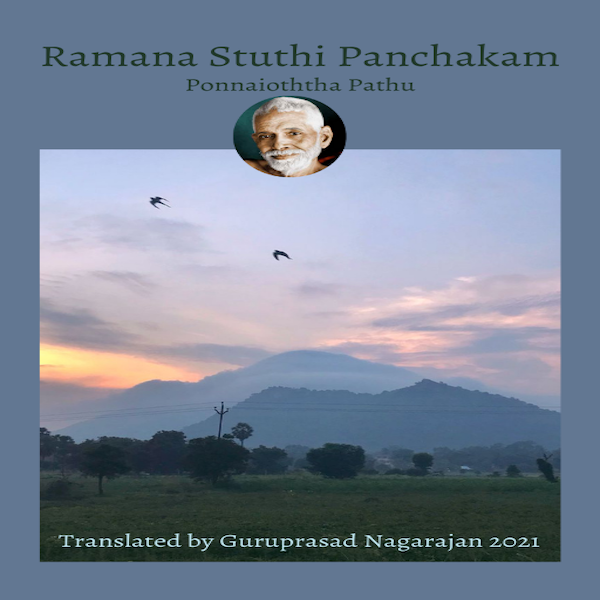
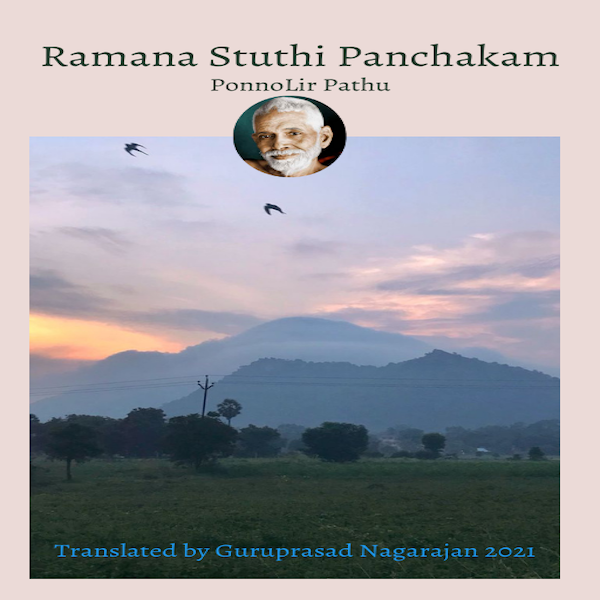
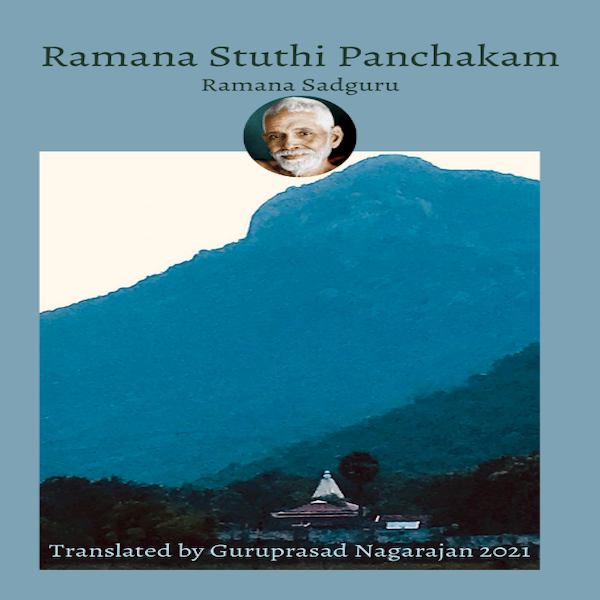
 RSS Feed
RSS Feed